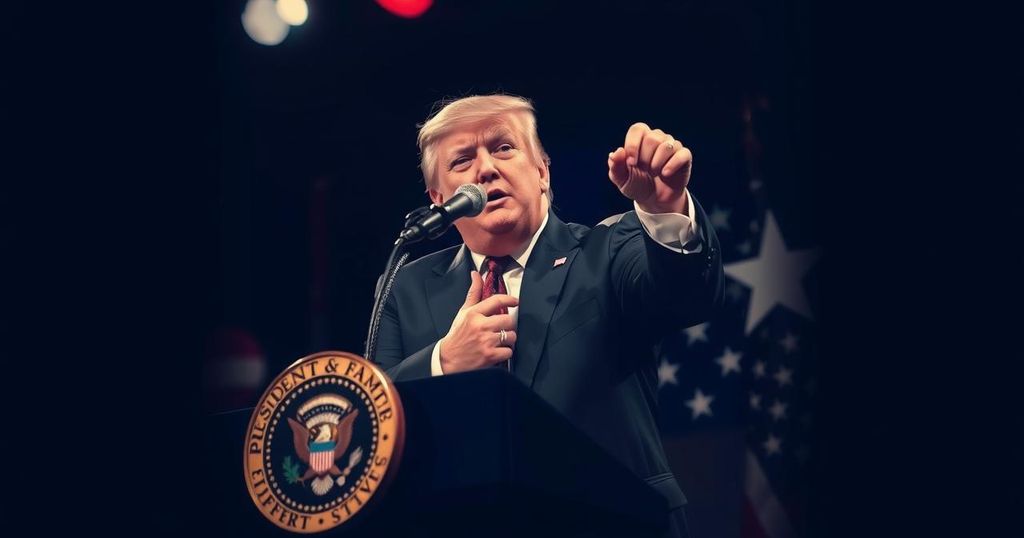Donald Trump has been elected as the 47th President of the United States, securing at least 277 Electoral College votes. His victory over Kamala Harris in battleground states reflects deep-seated frustrations among voters, particularly regarding economic challenges and political leadership. Trump’s expected policies signal a shift towards more aggressive domestic and foreign agendas, raising concerns about a fragmented and unpredictable era for both Americans and global relations.
Donald Trump has secured his position as the 47th President of the United States, according to The Associated Press, who reported early on the morning after the election that he had garnered a minimum of 277 Electoral College votes. His victory, which contrasts significantly with predictions of a close race, has drawn immediate international congratulations, though a renewed uncertainty in global affairs is anticipated in light of his historical presidency. Trump’s win over Vice President Kamala Harris in crucial battleground states like Wisconsin, Georgia, North Carolina, and Pennsylvania has reaffirmed his appeal to a disconcerted electorate, driven largely by economic concerns and dissatisfaction with political leadership. Post-election analysis suggests that Trump’s ability to reconnect with voters stems from longstanding unrest in American society, rooted in events such as 9/11 and the 2008 financial crisis. Observers note that this prevailing sentiment has propelled Trump back into the political arena, allowing him to capitalize on public outcry against issues like inflation and U.S. foreign interventions. His assertions of an expansive mandate and promises to enact bold policies signal a potentially transformative, albeit contentious, administration. In an ominous forecast regarding Trump’s expected foreign policy, analysts caution against an era marked by impulsive and nationally focused actions rather than collective international cooperation. His campaign rhetoric surrounding rapid resolutions to complex geopolitical conflicts, particularly regarding Ukraine and Israel, raises concerns among strategic allies and adversaries alike. Commentators emphasize that the administration may not pursue coherent policies, instead reflecting personal grievances and vendettas fueled by Trump’s narrative of victimization. Moving forward, there are expectations for punitive measures directed at political opponents and significant reinforcements of immigration policies, which could launch unprecedented deportation efforts. This trajectory of governance is projected to exacerbate existing divisions within the country and shift foreign relations into a more volatile and unpredictable realm, ultimately challenging both American citizens and global stakeholders.
The election of Donald Trump as the 47th President marks a significant shift in the political landscape of the United States. His victory comes in the midst of nationwide discontent, particularly in relation to economic issues and the United States’ international relations strategies. The background is steeped in public anger directed at perceived government inefficacies, which Trump historically adeptly harnesses to galvanize support. This election outcome is poised to redefine not only domestic policies but also the United States’ approach to international alliances and conflicts.
Donald Trump’s election as the 47th President is indicative of a deeply divided American electorate seeking a change rooted in long-held grievances. His platform promises radical transformations in governance, which may provoke unrest both domestically and internationally. As Trump prepares to take office, the implications of his policies and the manner in which he engages with global leaders remain uncertain but suggest a tumultuous period ahead. A coherent approach to governance or foreign relations appears unlikely, raising significant concerns for the stability of both the nation and its standing in the global arena.
Original Source: www.aljazeera.com






